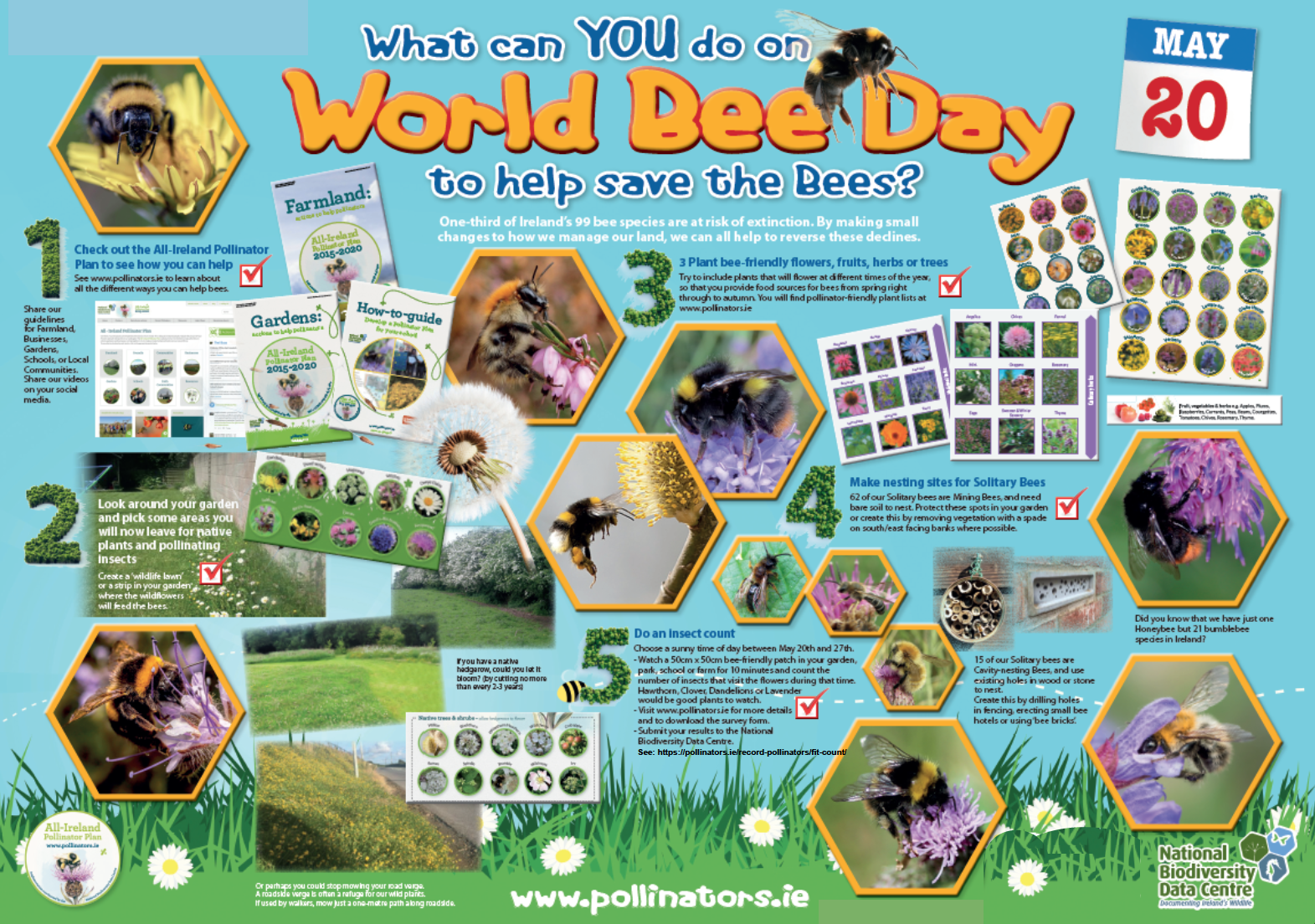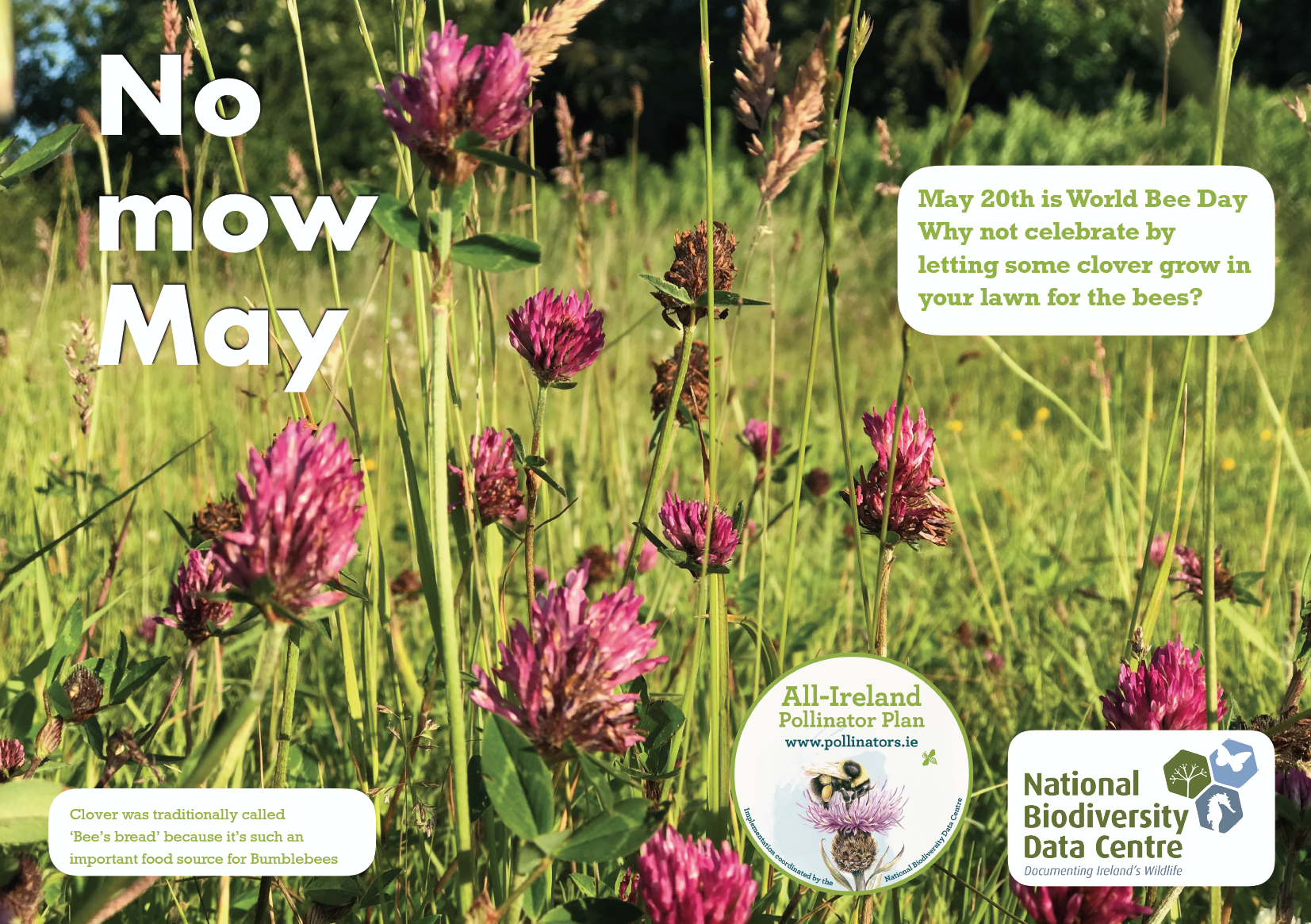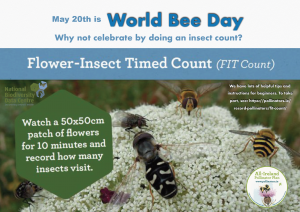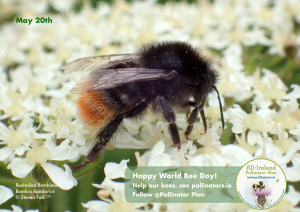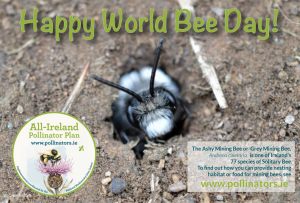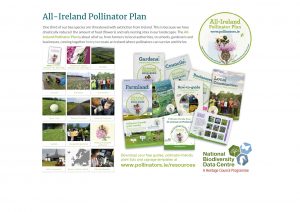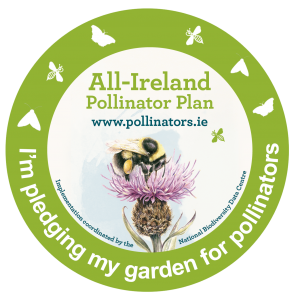World Bee Day
World Bee Day is an annual celebration of bees: important pollinators who need our help.
On the island of Ireland, insects pollinate more than three quarters of our wild plants, providing food and shelter for birds and mammals and contributing to healthy ecosystems. They are also responsible for healthy yields of many crops, fruits, and vegetables including apples, berries, tomatoes, and pumpkins. Pollinators are hugely important for safeguarding biodiversity, our food supply, and many industries connected to it.
Most pollination on the island of Ireland is carried out by wild bees. There are over 100 types of bee in Ireland – around 80% are solitary bees, 20% are bumblebees, and we have one native honeybee, which lives in lives and is usually looked after by beekeepers.
One third of our wild bees (bumblebees and solitary bees) are in decline, but there are simple ways to help them like mowing less to encourage native wildflowers, and eliminating pesticides.
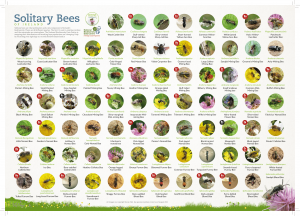
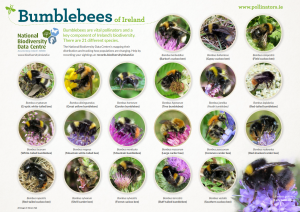
World Bee Day resources
We have plenty of resources to help you learn more about wild bees and how to help them. Choose from the list below:
- Top Ten Ways to Help Pollinators » All-Ireland Pollinator Plan
- Schools homepage: lesson plans and school resources
- Resources for Gardeners
- Resources for Community Groups
- Resources for Businesses
- Resources for Farmers
- Who are Our Pollinators? Find out more about bees and other pollinators on the island of Ireland
World Bee Day graphics
You are free to download and use these graphics to help celebrate World Bee Day.
About the All-Ireland Pollinator Plan
The All-Ireland Pollinator Plan is a framework bringing together different sectors across the island of Ireland to create a landscape where pollinators can survive and thrive. Its implementation is coordinated by the National Biodiversity Data Centre.

